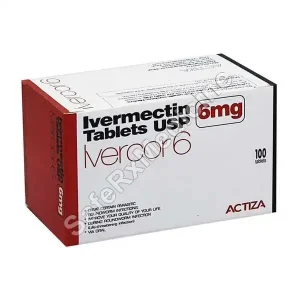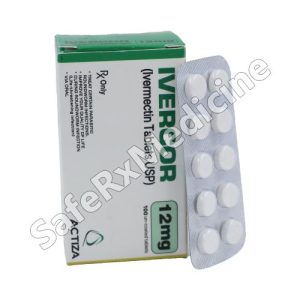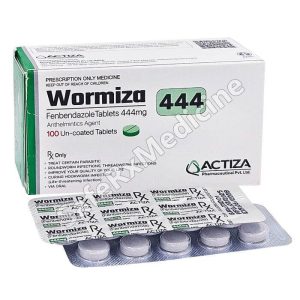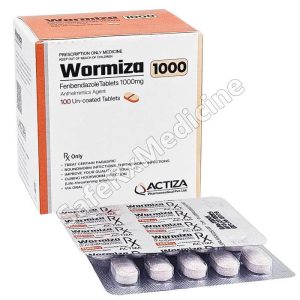
Ivermectin and Fenbendazole – When it comes to antiparasitic medications, ivermectin and fenbendazole are two of the most widely recognized and effective treatments. Both drugs have been used for decades in veterinary and human medicine to combat parasitic infections. While they share some similarities, they also have distinct mechanisms of action and applications.
In this detailed guide, we will explore the uses, benefits, mechanisms, and potential side effects of ivermectin and fenbendazole, as well as their growing popularity in alternative health circles.
What Are Ivermectin and Fenbendazole?
Ivermectin
Ivermectin is a broad-spectrum antiparasitic drug that was discovered in the 1970s. It is derived from the bacterium Streptomyces avermitilis and has been widely used to treat parasitic infections in humans and animals.
- Human Uses: Ivermectin is FDA-approved for treating conditions like onchocerciasis (river blindness), strongyloidiasis, and scabies.
- Veterinary Uses: It is commonly used to prevent heartworm in dogs and treat parasites like roundworms, mites, and lice.
Fenbendazole
Fenbendazole is a benzimidazole-class anthelmintic primarily used in veterinary medicine to treat parasitic worms.
- Veterinary Uses: It is effective against roundworms, hookworms, whipworms, and some tapeworms in animals.
- Emerging Human Use: While not FDA-approved for humans, fenbendazole has gained attention in alternative medicine for its potential anti-cancer properties.
Both ivermectin or fenbendazole work by disrupting the energy metabolism of parasites, leading to their death.
Save up to 90% on your medicine bills
-
Wormiza 444 mg (Fenbendazole)
Just $0.31 /Piece -
Wormiza 1000 mg (Fenbendazole)
Just $0.48 /Piece
Mechanisms of Action: How Do Ivermectin and Fenbendazole Work?
Ivermectin’s Mechanism
Ivermectin primarily targets the nervous system of parasites by binding to glutamate-gated chloride channels, causing paralysis and death. It is particularly effective against nematodes and arthropods.
Fenbendazole’s Mechanism
Fenbendazole works by inhibiting tubulin polymerization, which disrupts the parasites’ microtubule structure, impairing nutrient absorption and leading to their eventual death.
While ivermectin and fenbendazole have different mechanisms, they are sometimes used together for broader antiparasitic coverage.
Common Uses of Ivermectin and Fenbendazole
1. Treating Parasitic Infections
- Ivermectin is a go-to treatment for:
- River blindness
- Scabies
- Intestinal strongyloidiasis
- Fenbendazole is widely used in animals for:
- Roundworms
- Hookworms
- Tapeworms
2. Veterinary Applications
Both ivermectin and fenbendazole are staples in veterinary medicine for deworming pets and livestock.
3. Emerging Use in Cancer Therapy
Some studies suggest that ivermectin and fenbendazole may have anti-cancer properties by disrupting cancer cell metabolism. However, more research is needed in this area.
Safety and Side Effects of Ivermectin and Fenbendazole
Ivermectin Safety Profile
- Generally safe at prescribed doses
- Possible side effects:
- Dizziness
- Nausea
- Diarrhea
- In rare cases, neurological effects at high doses
Fenbendazole Safety Profile
- Considered safe for animals but not officially approved for humans
- Potential side effects in humans (based on anecdotal reports):
- Gastrointestinal discomfort
- Fatigue
- Liver enzyme changes
Note: Always consult a healthcare professional before using ivermectin and fenbendazole, especially for off-label purposes.
Ivermectin and Fenbendazole in Alternative Medicine
In recent years, ivermectin and fenbendazole have gained popularity in alternative health communities for their potential beyond parasitic infections. Some proponents claim benefits in:
- Immune system support
- Anti-inflammatory effects
- Potential anti-cancer applications
While anecdotal reports are promising, scientific validation is still limited.
Dosage and Administration
Ivermectin Dosage
- For parasitic infections in humans: Typically 150–200 mcg/kg as a single dose
- For veterinary use: Dosage varies by animal weight and condition
Fenbendazole Dosage
- For animals: Usually 50 mg/kg for 3 consecutive days
- For human experimental use: No standardized dosage; often taken in low doses (e.g., 222 mg daily)
Important: Self-medicating with ivermectin and fenbendazole without medical supervision can be risky.
Controversies and Misconceptions
Ivermectin in COVID-19
During the COVID-19 pandemic, ivermectin was controversially promoted as a treatment, leading to debates over its efficacy. While some studies suggested benefits, major health organizations did not endorse its use due to insufficient evidence.
Fenbendazole for Cancer
Fenbendazole’s use in cancer treatment is based on limited preclinical studies. Patients should not replace conventional treatments without medical advice.
Conclusion
Ivermectin and fenbendazole are powerful antiparasitic agents with well-established uses in both human and veterinary medicine. While they show promise in alternative therapies, further research is needed to validate their off-label applications.
If you’re considering using ivermectin and fenbendazole, always consult a healthcare provider to ensure safe and appropriate use.
Final Thoughts
The growing interest in ivermectin and fenbendazole highlights the need for more scientific exploration into their full potential. Whether for parasitic infections or experimental therapies, understanding their mechanisms and risks is crucial for responsible use.
By staying informed, you can make better decisions about ivermectin and fenbendazole for health and wellness.






Comments (0)
Leave A Comment